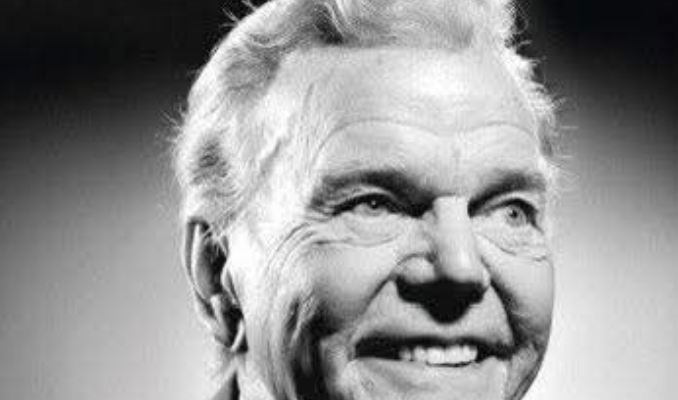For many who grew up in the 1970s, Paul Harvey’s voice wasn’t just a familiar presence — it was a daily ritual. His distinctive cadence, deliberate pauses, and signature sign-off, “And now you know… the rest of the story,” carried a weight that transcended ordinary news broadcasts. Families gathered around radios not just for information, but for insight. Harvey delivered the headlines of the day with a rare blend of storytelling, moral reflection, and common-sense wisdom that made him more than just a broadcaster. To his loyal audience, he was a trusted guide — someone who could make sense of a rapidly changing world.
Now, decades later, clips of Paul Harvey’s old commentaries are making their way across the internet. Shared on social media, they often leave viewers stunned — not because they predict the future with eerie accuracy, but because they articulate truths that remain deeply relevant. His reflections on cultural drift, family structure, personal responsibility, and the dignity of work feel as if they were written for our current moment. What makes his words so enduring?
Why His Words Still Resonate
One reason Harvey’s voice continues to echo is clarity. He didn’t speak in complicated jargon or lofty abstractions. He used simple, direct language — the kind that cuts through noise and confusion. In an era when so much of public discourse is clouded by polarization or performance, there is something deeply refreshing about Harvey’s plainspoken approach. He said what he meant, and meant what he said.
Another reason is foresight. Paul Harvey didn’t claim to be a prophet, but he had an uncanny ability to observe the direction of society and draw out timeless lessons. His commentaries weren’t about predicting events; they were about identifying patterns in human behavior — patterns that repeat across generations. He reminded his listeners of enduring truths: that hard work builds character, that family bonds must be protected, that freedom requires responsibility, and that honesty is worth more than popularity.
Most importantly, Harvey provided a steady moral compass. At a time when the world was shifting — politically, culturally, and technologically — he offered grounding principles. He reminded people of values that seemed to be fading: humility, discipline, accountability, and faith. He didn’t moralize or lecture; he simply told stories that revealed the consequences of choices, both good and bad. In doing so, he helped his audience reflect on their own lives and society at large.
A Lasting Lesson
There is a verse in the Qur’an that says, “So remind, for indeed the reminder benefits the believers” (51:55). Paul Harvey was not a religious figure, but he played a similar role in American culture — that of the reminder. He didn’t present new doctrines or groundbreaking revelations; instead, he brought people back to what they already knew in their hearts. He helped them remember.
In today’s world, where the appetite for sensationalism often outweighs the search for wisdom, Harvey’s legacy offers a powerful lesson. We do not need more fortune-tellers. We need more truth-tellers — people who are brave enough to say what matters, even when it’s unpopular. People who can cut through the chaos and speak with sincerity, not spin.
Rather than marveling at how “accurate” Harvey seems in hindsight, perhaps the more important takeaway is that the fundamental struggles of society have not changed. We still wrestle with the same virtues and vices. We still long for voices that speak with integrity and moral clarity.
Paul Harvey’s enduring relevance is not about his predictions — it’s about his principles. Truth told sincerely never goes out of date. In remembering his voice, we are reminded of our own — and of the responsibility we each carry to uphold what is good, true, and lasting.



